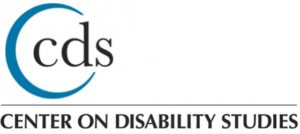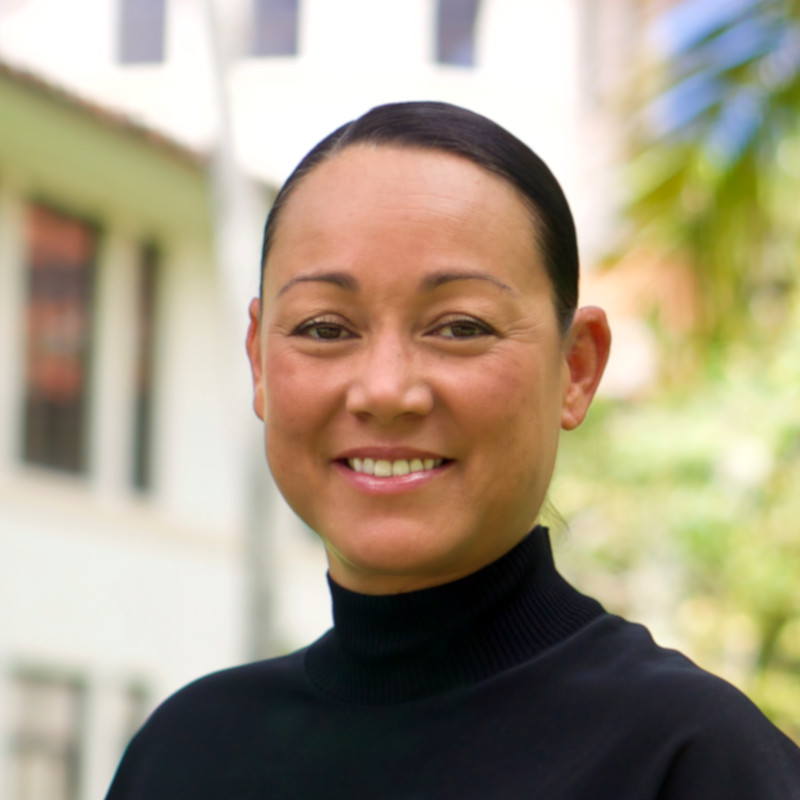
The Center on Disability Studies (CDS) in the UH Mānoa College of Education has been awarded nearly $7 million by the U.S. Department of Education (DOE). Serving diverse populations, including Native Hawaiian, deaf-blind, at-risk, English language learners, and economically disadvantaged, five CDS programs will receive funding over the next three to five years.
Ne‘epapa Ka Hana 2.0: Expanding Native Hawaiian Student Access and Teacher Training from Middle School Mathematics to the STEM Workforce (NKH 2.0), led by Associate Specialist Kaveh Abhari, will receive $950K from the U.S. Department of Education (USDOE) Office of Elementary and Secondary Education, Native Hawaiian Education Program over a three-year period. NKH 2.0 was designed to improve mathematics proficiency, attitude, and persistence as well as intention toward STEM, digital literacy and information, and cultural literacy among underserved Native Hawaiian students in Hawai‘i middle schools. In collaboration with 10 existing teacher partnerships, NKH 2.0 will develop socio-culturally responsive project-based learning curricula for sixth and seventh grade; field-test and refine the curricula; train 40 teachers on O‘ahu, Hawai‘i, Kaua‘i, Maui, and Moloka‘i; and disseminate materials statewide.
Under the direction of Assistant Specialist Lisa Uyehara, Project Ho‘oku‘i III: Na Kumu Alaka‘i will receive $2.1 million over the next three years also from the USDOE Office of Elementary and Secondary Education, Native Hawaiian Education Program. Addressing the needs of at-risk children and youth and the underemployment of Native Hawaiians, the goal of Na Kumu Alaka‘i is to continuously increase enrollment of Native Hawaiian students in postsecondary education or certification programs, leading to employment. This will be done by implementing a professional development program designed for Hawai‘i Department of Education (HIDOE) faculty based on the previous Project Hoʻokuʻi model.
“We piloted Project Ho‘oku‘i six years ago on Hawai‘i, Maui, and Moloka‘i, expanding to O‘ahu and Lāna‘i with our second iteration,” Uyehara said. “This new award gives us the opportunity to extend the project to include Kaua‘i, so that students statewide are provided support towards postsecondary educations.”
Another CDS project supported by the USDOE Office of Elementary and Secondary Education, Native Hawaiian Education Program – Postsecondary Support Project Increasing the Success of Native Hawaiian Youth with Culturally Responsive Coaching – was awarded $2.1 million for a three-year period. Directed by Associate Specialist Eric Folk, the program will work with the UH Community College System (UHCC) to enhance and expand a highly successful support model that addresses the needs of Native Hawaiian youth who are at risk of failure in postsecondary education and to realize improved employment outcomes. Folk anticipates that the program will directly impact nearly 2,000 Native Hawaiians by facilitating access and reducing the probability of failure and drop out of postsecondary education. The project has targeted six UHCC campuses and aims to make a positive impact upon the cultural responsiveness of faculty and staff who are working with Native Hawaiian youth at each of the campuses.
Hawaii Family Engagement Center (HFEC), directed by Associate Specialist Chuan Chin and co-directed by Associate Professor Hye Jin Park, was awarded an initial $990K for 2018–19. CDS Director Patricia Morrissey anticipates that the program will be funded for a five-year period by the USDOE Office of Innovation and Improvement. HFEC’s goal is to build the capacity of every community in Hawai‘i to develop and sustain strong, productive relationships among schools, parents, and community organizations so that children thrive developmentally and academically statewide. CDS will partner with the Hawai‘i DOE, Leadership in Disabilities and Achievement of Hawai‘i, Hawai‘i’s Parent Training and Information Center (authorized under the Individuals with Disabilities Education Act), Special Parent Information Network, Hawai‘i Business Leadership Network, Regional Educational Laboratory Pacific, and other community-based organizations.
CDS Director Patricia Morrissey said, “Family engagement with their children’s schools is critical to their development, ability to learn, success in life, and happiness. CDS is honored and pleased to be partnering with the Hawai‘i DOE and parent and community organizations to build and strengthen family engagement statewide for families who are economically disadvantaged, have members with disabilities, or speak English as a second language, We have five years to do it, and we will!”
The Hawai‘i & Pacific Deaf Blind Consortium (HPDBC), co-directed by Junior Specialists Mellanie Lee and Jenn Tarnay, has been funded $157K per year for five years by the USDOE Office of Special Education and Rehabilitative Services. HPDBC will address the diverse needs of individuals with deaf-blindness in Hawai‘i and the Pacific through technical assistance and dissemination. The project’s primary goals include identifying children and young adults, birth through 21 years, in the Pacific who are deaf-blind; increasing knowledge, skills, and support for families and service providers related to deaf-blindness, including postsecondary transition; assisting families and service providers in enhancing the development of literacy and numeracy skills for children and young adults who are deaf-blind; and expanding service providers’ abilities to use evidence-based, culturally-relevant practices for supporting deaf-blind individuals.
“These grants make us very proud,” Morrissey concluded. “They will help us serve the under-served, build capacity and partnerships across the state, and support young people with disabilities to realize their quests for bright futures.”
CDS is an organized research unit responsible for providing interdisciplinary personnel preparation; conducting community training and outreach; initiating research, demonstration, and evaluation projects; disseminating information on evidence-based practices; and serving the university and community to improve the quality of services provided to persons with disabilities.

